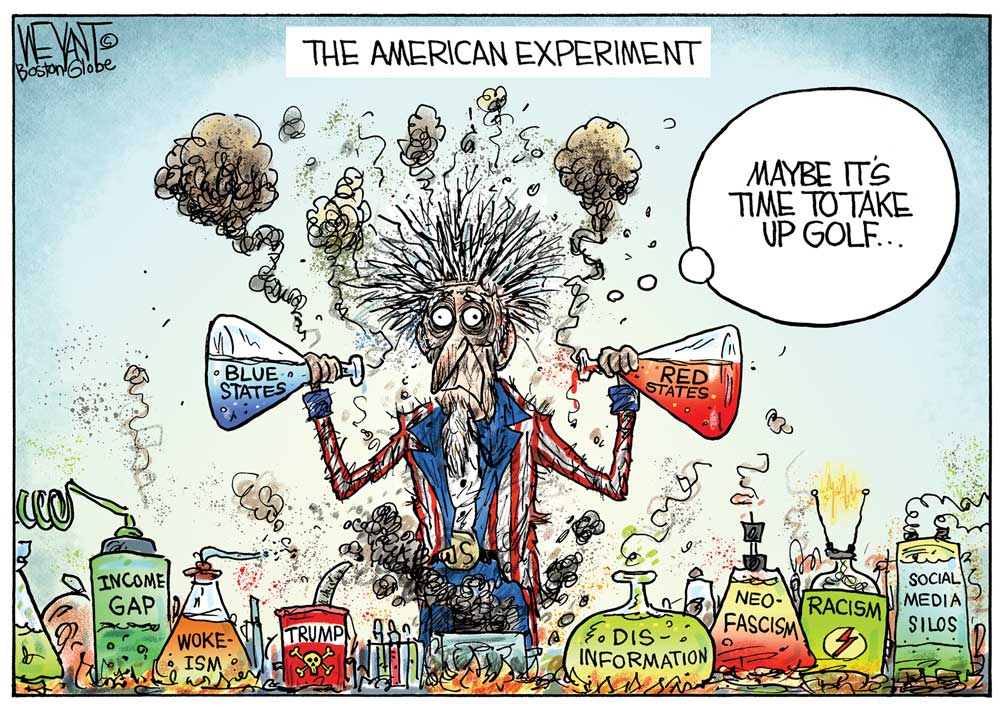
To include your event in the Briefing and Live Calendar, please fill out this form.
Weather: Partly sunny in the morning, then becoming mostly cloudy. A chance of showers and thunderstorms. Highs in the lower 90s. West winds around 5 mph. Chance of rain 50 percent. Thursday Night: Mostly cloudy. A chance of showers and thunderstorms, mainly in the evening. Lows in the mid 70s. Southwest winds around 5 mph. Chance of rain 50 percent.
- Daily weather briefing from the National Weather Service in Jacksonville here.
- Drought conditions here. (What is the Keetch-Byram drought index?).
- Check today’s tides in Flagler Beach here.
- tropical cyclone activity here, and even more details here.
Today at a Glance:
Drug Court convenes before Circuit Judge Terence Perkins at 10 a.m. in Courtroom 401 at the Flagler County courthouse, Kim C. Hammond Justice Center 1769 E Moody Blvd, Bldg 1, Bunnell. Drug Court is open to the public. See the Drug Court handbook here and the participation agreement here.
In Court: Splash Pad Case : A motion hearing is scheduled at 1:45 p.m. before Circuit Judge Chris France in Palm Coast’s case against several contractors involved in the design and construction of the ill-fated splash pad at Holland Park.
The Flagler Beach City Commission meets at 5:30 p.m. at City Hall, 105 South 2nd Street in Flagler Beach. Watch the meeting at the city’s YouTube channel here. Access meeting agenda and materials here. See a list of commission members and their email addresses here.
The Palm Coast Democratic Club holds its monthly meeting at noon at the Flagler Democratic Party Headquarters in City Marketplace, 160 Cypress Point Parkway, Suite C214, Palm Coast. The June speaker is US Congressional Candidate James Stockton. Noon. Stockton, running to represent Flagler County in Congress. He is the eldest son of a public school bus driver and a heavy equipment operator. He was raised in a home of morals and values based on the principle of “do unto others as you would have them do unto you.” All are welcome to attend and meet Stockton. This gathering is open to the public at no charge. No advance arrangements are necessary. Call (386) 283-4883 for best directions or (561)-235-2065 for more information.
Democratic Candidates meet ‘n greet at the Palm Coast Community Center, 305 Palm Coast Parkway NE, 6 to 7:30 p.m.
Notably: We’re a pretty literate culture, with well over a quarter million books published every year, not counting the self-published mill. But it’s rare that a book causes that combination of controversy and genuine interest across the culture–that a book be talked about like, say, Taylor Swift. It happens once in a while. There was Silent Spring, the Rachel Carson birthing of the environmental movement. Updike’s Couples got him on the cover of Time in 1968, if for the wrong reasons, the same year Myra Breckinridge made Gore Vidal a household name, though Myra didn’t get him on Time’s front page, and both got beaten by Arthur Hailey’s Airport for best-selling fiction book of the year, a year that had a cookbook atop the non-fiction list–a cookbook, at the height of the Vietnam slaughter, which drew zero entries in the year’s to-10 non-fiction sellers. Even Couples and Myra didn’t have the effect of Allan Bloom’s The Closing of the American Mind in 1987. The book was a best-seller for a while (it didn’t make it higher than 10 for the year, with a Bill Cosby volume winning the top spot that year), but there’s rarely been a book by an obscure intellectual talked about and debated for so long. There were books like Solzhenitsyn’s Gulag Archipelago and Stephen Hawking’s Brief History of Time which everyone bought and everyone talked about but no one ever read (I couldn’t crack Hawking, but I’ve read all three Gulag books twice, as Soviet-era travel books). There was The Bell Curve in 1994, the attempt by Charles Murray and Richard Hernstein to cloak bigoted phrenology with a numerological twist in intellectual pretensions. The New Republic devoted an entire issue to refuting it. Somewhere along the way the United States briefly looked like it was going the way of Rome in Gibbon’s hands when Robert James Waller became everyone’s sensation, even Clint Eastwood. That pandemic thankfully passed. More recently, we had The 1619 Project, the wonderful Nikole Hannah-Jones-edited rewriting of American history from a Blacker perspective. My point about all this is this: none of the books that got everyone talking, however controversial, got banned from school or public libraries (Updike and Vidal aside). They got debated, argued over, battled over. With one exception: the state of Florida’s education board banned The 1619 Project from all Florida schools. A sweeping, unprecedented ban. Not The Bell Curve. But The 1619 Project. Imagine why.
—P.T.
View this profile on Instagram
![]()
The Live Calendar is a compendium of local and regional political, civic and cultural events. You can input your own calendar events directly onto the site as you wish them to appear (pending approval of course). To include your event in the Live Calendar, please fill out this form.
January 2026
ESL Bible Studies for Intermediate and Advanced Students
Grace Community Food Pantry on Education Way
Palm Coast Farmers’ Market at European Village
Stetson University Concert Choir in Concert with Orlando Philharmonic
Al-Anon Family Groups
Temple Beth Shalom Blessing of the Pets
Nar-Anon Family Group
Palm Coast Charter Review Committee Meeting
Bunnell City Commission Meeting
For the full calendar, go here.

But in the United States, movements of the left, even those organized around the rights and empowerment of specific ethnic or racial groups, have rarely if ever argued for limiting the rights of other groups or individuals. Social justice movements are sometimes accused of reverse racism and bowing to illiberal methods to achieve their ends, of suggesting that their lives and those of their followers matter more than the lives of others, that the attainment of justice for them should come at the expense of those who are either not with them or are against them. In truth, these movements rarely, if ever, make such claims or demands. Rather, in speeches and writings, in demonstrations and electoral mobilizations, they fundamentally insist we acknowledge that over the course of our history the subordinated groups they represent have been treated as if their lives don’t matter, as if they are of little value, as if they are readily expendable, as if our conceptions of rights and expectations of justice do not apply to them. And so, their goals have been inclusion because they are refused it, and empowerment because they are deprived of it.
–From Steven Hahn, Illiberal America: A History (2024).






































Ray W. says
Over a century ago, Congress created the independent Federal Reserve Bank. Independent means that the Fed acts without political oversight.
Economists from the central Fed and its 10 branch banks meet nearly every month (no meeting in August this year) to discuss its two legislative mandates: maximize job creation and manage the overall American economy.
The leader of the central Fed is a Senate appointment with a four-year term. The current leader, Jerome Powell, was originally nominated by then-President Trump and renominated by President Biden. The Senate overwhelmingly approved his nomination each time.
Mr. Powell meets with sixteen other economists, selected on a rotating basis from Fed personnel, either from the central Fed or from the ten branches. Mr. Powell presents the consensus of the 17 members. Keep this in mind when you read what Mr. Powell recently said under oath to the Senate Committee on Banking, Housing, and Urban Affairs:
“We need to see more good inflation data and we want to continue to see a strong labor market.” He added: “These two things are equal under the law.”
Relative to the third portion of the statement, Mr. Powell emphasized to the Committee that he understands the statutory limitations on his decisions, re: the American economy and the jobs market, i.e., keep things balanced on a macroeconomic level and do whatever is necessary to keep job creation strong.
The reason I use the term “balanced” comes from another part of Mr. Powell’s testimony: “We’re very much aware that we have two-sided risks now. … We’re determined to balance those as best we can.”
The major two-sided risk he is referring to is when to lower the current lending rate. If the Fed decides too soon to lower the rate, it risks heating up the overall economy, leading to a rise in inflation. If the Fed decides too late to lower the lending rate, it risks damaging the labor market and sending the overall economy into recession.
The goal is the proverbial “soft landing”, where the strong labor market becomes less strong, but never weak, and the strong economy becomes less strong, but never weak.
As for the first two elements of Mr. Powell’s statement, it seems clear to me that the 17 economists are agreed that for some time they have been seeing “good inflation data.” That position is emphasized by Mr. Powell’s use of “more” in that part of his statement.
And it seems clear to me that the 17 economists are agreed that for some time the labor market data has been “strong.” This position is emphasized by Mr. Powell’s use of the term “continued.”
If I understand Mr. Powell’s comments accurately, what we need is a steady slowing of the jobs market through three things. 1. The unemployment rate has been at historic low levels for years now. It can tick up or down by a tenth every month, but if the rate drops too low, it can place upwards pressure on wages, leading to potential inflation. 2. If the number of posted job openings remains upwards of 8 million, something that had never happened in history prior to the pandemic, then the lack of workers to fill those jobs will place upward pressure on wages, leading to potential inflation. 3. If the economy keeps adding jobs at a rate over 200k per month, it will place upward pressure on wages, leading to potential inflation.
Today’s Fed lending rate is designed to keep unemployment stable, to reduce the overall number of jobs created to a more manageable 150k-175k per month rate, and to reduce the number of posted job openings to under 8 million. If these three things occur, along with a slow and steady reduction of the rolling annualized inflation rate, we will see reductions in the Fed’s lending rate.
If the Fed sees continuing inflows of healthy economic and jobs data, it could lower the lending rate as early as September. Last month, 50% of leading economists predicted a lending rate cut in September. This month? 70%.
If the rate is cut in September, we will inevitably see FlaglerLive comments that the Fed is purposely acting to influence the November election. They will be wrong, of course, but the gullible among us might fall for the deception. If the 17-member Fed team decides it is time to cut rates, Mr. Powell will announce the consensus. To him, it doesn’t matter that there is an election.
For over 100 years, the leader of the Fed has been commanded by statute to manage the economy and maximize job growth. Waiting too long, in Powell’s words, could hurt the overall American economy. Simple as that.